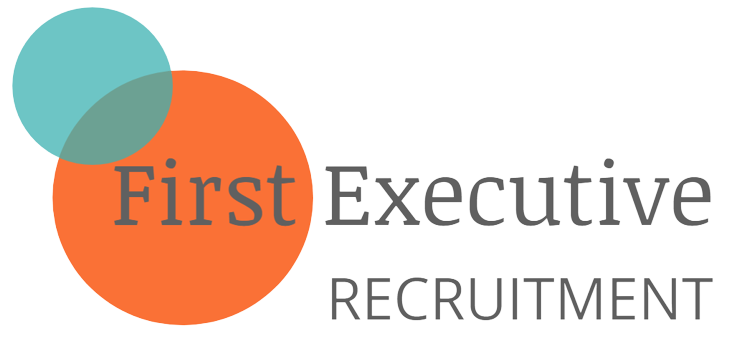There was a buzz amongst tech firms about 10-15 years ago recognising the value of neurodivergence in the workplace. Some recent research by Birkbeck’s Research Centre for Neurodiversity at Work (commissioned by Neurodiversity in Business (NiB)) has highlighted that neurodiverse workers bring enormous benefit to industries such as engineering and manufacturing, where skills like hyper focus, problem solving, innovative thinking and pattern recognition are desirable.
Like diversity in terms of sex and race have proven to be beneficial to business success, so it turns out is neurodivergence.
However, the research also reveals some notable hurdles. Most notably, at the recruitment stage, neurodivergent candidates are often reluctant to share their neurodivergence with hiring managers and potential employers. The research revealed that 65% feared discrimination from management and 55% from colleagues. But the flipside shows that employers struggle to know how to help. 69% report that lack of disclosure is an issue and 65% say that managers don’t know enough about neurodivergence.
It’s a complete catch 22. As the research report reveals, “Employees don’t feel safe enough to disclose, but without them stating their needs, employers and managers don’t know how best to support.”
Neurodivergence and valuable workplace skills
Neurodivergence encompasses a range of neurological variations, including autism, ADHD, dyslexia, and more. The unique neurocognitive profiles of individuals often bring exceptional skills that can be harnessed by employers to improve their success and meet goals and objectives. Examples of some of these skills include:
- Hyper focus: Hyper focus is the ability to become deeply engrossed in a task, without being distracted by other external influences. This intense concentration can lead to remarkable productivity and problem-solving, making neurodiverse employees invaluable when tackling complex projects with tight deadlines. This is vital in a huge range of industries beyond stereotypical tech, and definitely includes sectors like engineering and manufacturing.value of neurodivergence
- Creativity: Neurodivergent individuals commonly think outside the box, approaching challenges with innovative thinking that can lead to ground-breaking solutions. These individuals bring fresh perspectives to the table, helping organisations break free from conventional thinking and explore new avenues for growth and development. In the same way that fresh ideas come from diverse boards and workforces, fresh ideas come when neurodivergence is included.
- Visual reasoning: Some neurodivergent individuals excel in recognising patterns and processing intricate details. This skill is particularly beneficial in roles requiring data analysis, graphic design, and quality control, where attention to detail and pattern recognition can make a substantial impact.
- Problem-solving and strategising: Often, neurodivergent individuals have strong problem-solving and strategising skills. Their unique cognitive processes often lead to novel solutions to complex problems. They may excel in spotting inefficiencies, streamlining processes, and optimising workflows. These skills are especially valuable in fast-paced industries where quick decision-making is essential.
These are just a handful of the workplace skills that employers look for which are often found in those with neurodivergence. However, despite these valuable traits, stereotypes and misconceptions about neurodivergence persist. For example, a harmful stereotype is the idea that autistic individuals struggle with communication. While some individuals on the autism spectrum may face communication challenges, many are exceptionally clear and precise communicators. Their attention to detail and ability to convey complex ideas in a straightforward manner can actually enhance communication within a team.
Furthermore, it’s important to understand that neurodiversity is not a one-size-fits-all concept. The skills and strengths of neurodivergent individuals vary widely. For instance, some individuals with ADHD may excel in roles requiring multitasking and adaptability, while others may thrive in roles where hyper focus is an asset. Employers need to pay attention to the skills a role really needs, which will often welcome neurodivergence into the workplace.
Why standard recruitment processes fall short
Despite the undeniable value that neurodivergent individuals bring to the workplace, standard recruitment processes often fail to recognise and harness their unique talents. The recruitment processes themselves, especially in senior and executive recruitment, typically favour traits and abilities that are more commonly associated with neurotypical individuals, inadvertently disadvantaging neurodivergent candidates, and without truly considering what skills are actually needed in the role.
One major issue is the advantage afforded to extroverted individuals during interviews. Traditional interviews heavily rely on verbal communication, charisma, and social skills. Extroverted candidates often excel in these situations, impressing hiring managers with their ability to make a strong initial impression. However, this doesn’t necessarily reflect their ability to perform well in the actual job, especially if the job itself doesn’t require these skills on a day-to-day basis.
This bias towards extroversion can lead to overlooking neurodivergent candidates who may not shine in traditional interviews but possess exceptional skills that are highly relevant to the position. For example, an autistic individual may struggle with small talk but excel in the data analysis required for board level roles.
Differences can be misinterpreted as a lack of interest or professionalism, leading to missed opportunities for both the candidate and the employer.
It’s essential to recognise that the number of diagnosed neurodivergent individuals in the workforce is rising, making it increasingly important for employers to adapt their recruitment practices. It’s crucial to ensure that recruitment processes are inclusive and so too are workplaces.
To address these challenges, you can take several steps to make it easier and safer for candidates to disclose their neurodivergence:
- Educate hiring managers: Provide training to hiring managers on neurodiversity, its advantages, and potential challenges. Awareness and understanding can lead to more informed hiring decisions.
- Offer alternative assessment methods: Consider using alternative methods for assessing candidates, such as skills-based tests or trial work assignments, rather than relying solely on traditional interviews.
- Flexible interview formats: Allow candidates to choose the interview format that suits them best, whether it’s in-person, virtual, or written responses. This flexibility can help candidates feel more at ease and showcase their abilities more effectively.
- Encourage disclosure: Create a culture of openness where candidates feel comfortable disclosing their neurodivergence without fear of discrimination. This can be achieved by explicitly stating that disclosure will not impact hiring decisions and by providing a designated point of contact for accommodations.
As the research shows, we’ve got a long way to go to make neurodivergent individuals feel confident to disclose at the candidate stage, but it’s often to the employer’s advantage if they can bring on board the skills that those with neurodivergence have. Focus on skills required for the role, avoid hiring in your own likeness (especially at executive levels) and educate yourself about neurodivergent stereotypes.
Those employers who recognise the value of a skills-based workplace that is inclusive, ensuring accommodations for neurodivergent individuals, will benefit in the form of greater success overall with innovative workforces.
As always, we are here to help you find the right people for your organisation based on the unique dynamics of your business. Get in touch on 0161 359 3111.
#neurodiversity #recrutiment #ukmfg #ukengineering #executiverecrutiment
Our next article will be published in October. To sign up to our newsletter click here. Follow us on LinkedIn, Twitter and Facebook
If you have a colleague that would find this information valuable, please forward this on to them or tag them below.
Book a call if you’d like to discuss how we can help you find the best people you need for your business. https://tiny.cc/QuickCall

